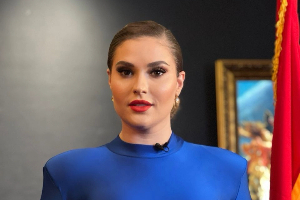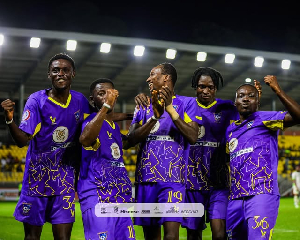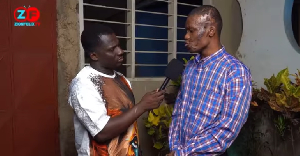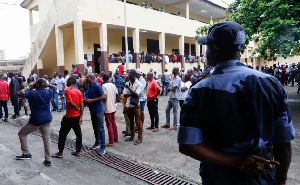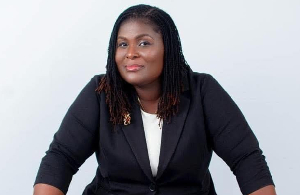Shalimar Abbiusi, a Belgian national and The New Force spokesperson highlighted what she described as brutal treatment by Ghanaian law enforcement prior to her deportation.
The philanthropist and former beauty queen lamented that the experience she went through was a violation of her rights.
Speaking in an exclusive interview with Dr. Ren, sitting in for 'As It Is in Ghana' on Rainbow Radio 92.4FM in the United Kingdom, Shalimar Abbiusi said she is currently seeking legal redress at the ECOWAS court.
According to her, it is distressing that she is unable to achieve everything she wants to do, but she believes she can make a difference from where she is now.
"I do believe that you don't have to be physically present to make an impact or to create change. That is why I am telling my story and letting people know how we can continue to create change," she said.
She told the host that she would not have headed to the ECOWAS court if she had been treated as humans should be treated.
She expressed her desire to return to Ghana so she could continue impacting lives positively.
"I am currently in the ECOWAS court fighting the violation of my human rights. I definitely think that will have a positive impact on my coming back to Ghana. After the elections, I am very keen on coming back to continue doing more. I don't think it was just at all. If that were the case, I wouldn't be fighting it in the ECOWAS court. There have been so many human rights violations throughout the whole process of my incarceration, from start to finish. I think we have to speak up about this," she emphasized.
She stressed the need for Ghanaians to speak out against the brutal treatment of persons detained by the Immigration Service and the National Intelligence Bureau.
"I think we have to shed light on certain issues, on human rights violations, because of what I have seen and what I have been exposed to. If this is what they are doing to me, how much are Africans and Ghanaians suffering every day? It is really important that we speak up and not be silenced. I want to be a voice for the voiceless and speak up for those who nobody is listening to," she added.
When asked if the deportation affected her emotionally, she answered affirmatively, saying, "It affected me emotionally. It was a traumatic experience." She revealed to the host that she was locked up with men and other nationals from other countries. "I was shocked, honestly. I was appalled that some people were sitting there for nine months without any legal representation, without a phone call, without anything for immigration issues, and I don't think that was right."
"After that, I was transferred to the National Intelligence Bureau, which was a more secluded cell with maximum security. I was there for seven days. And it was a horrible experience. People are not speaking about this because they are being silenced. I think it is my responsibility now to speak for those people because it is inhumane. The food was the least of my problems. There were feedings three times a day; they gave us 'gobe', banku, and tea with bread.
"But the circumstances there were inhumane. There was no opportunity for me to change clothes; it was very dirty; there was just a thin mattress on the floor; there was just a small piece of soap to wash yourself; there was no cleaning underway. So it was just a big black bunker," she added.
She indicated that she would like to return to Ghana after all of these occurrences because it is her second home; she created a strong network there; she lives there; she has the proper paperwork; she established her life there; and she still considers Ghana her home.
General News of Sunday, 23 June 2024
Source: rainbowradioonline.com

